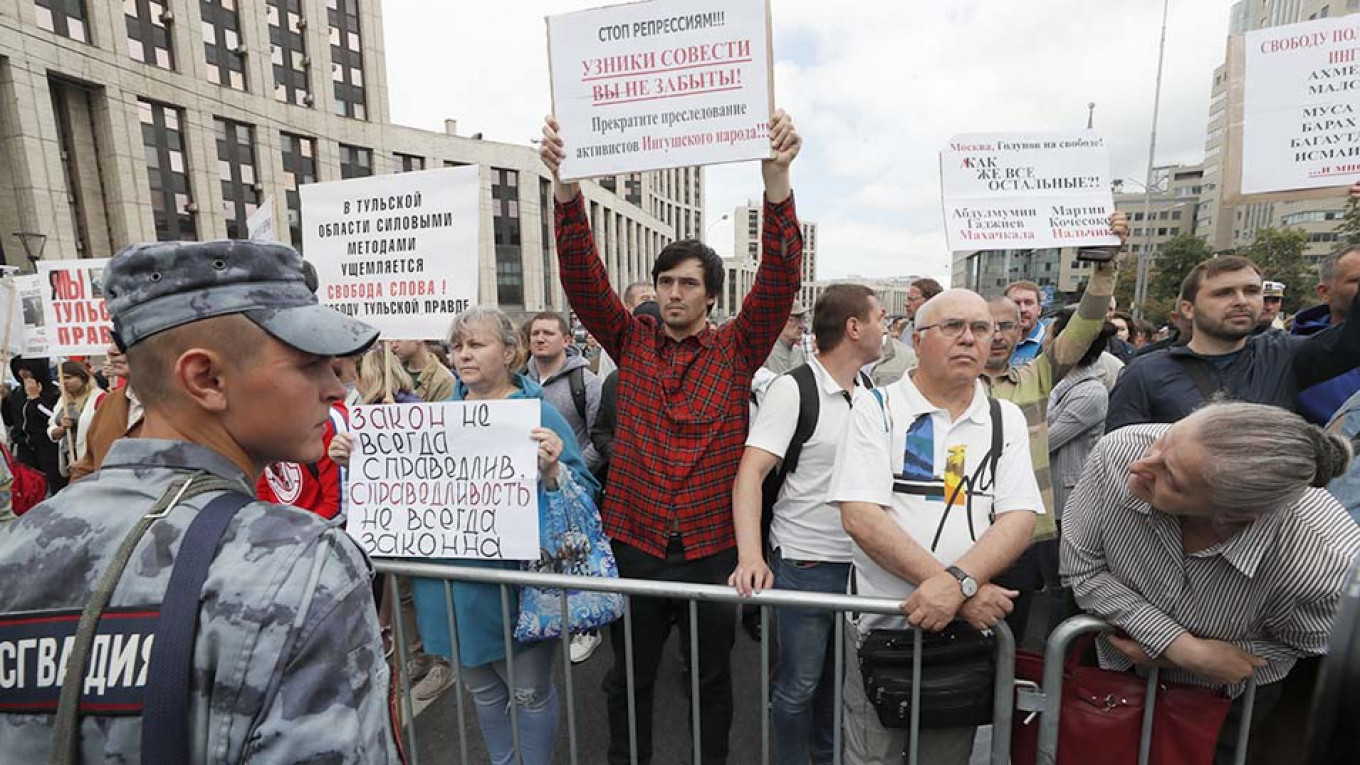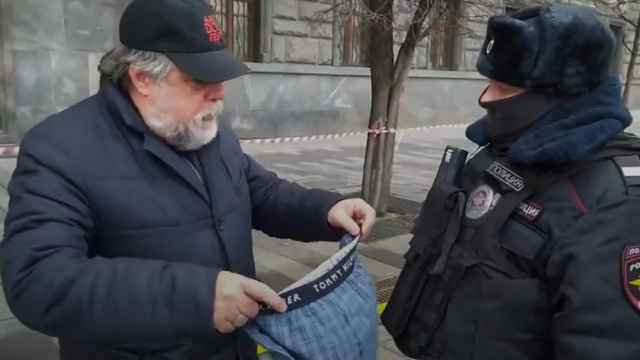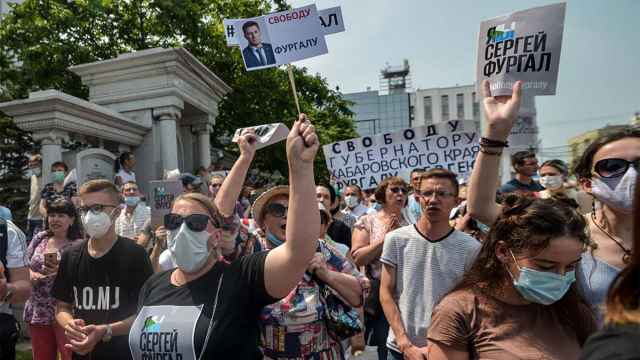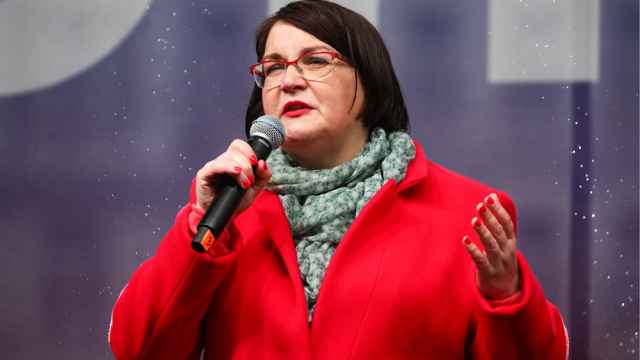Russians are increasingly likely to rally over social than political issues, according to a newly released study of protests in the first three months of 2019.
Freedom of assembly has been gradually restricted in Russia since a wave of mass protests in 2011-2012 against President Vladimir Putin. Observers say that nonpolitical demonstrations have become more frequent in recent years amid a rise in general discontent.
More than one-third of 429 rallies in 2019 concerned social issues, the Center for Social and Labor Rights said in a study published Friday. That’s almost double the 86 social protests flagged in the same period of 2018.
More than half of the social protests focused on rising trash pickup costs, unpopular retirement age hikes and benefit cuts, the Moscow-based NGO said.
Study author Anna Ochkina said the protests have spread across Russia this year, with residents far outside the country’s urban centers now taking to the streets over local and regional issues.
“The geography is now very diverse,” she told the Kommersant business daily Saturday. “These cities rarely flashed on the map of protest activity two or three years ago.”
Environmentalists, defrauded co-investors and other issues-based protesters increasingly prefer not to refer to their actions as political, said Lev Gudkov, the head of Russia’s independent Levada Center polling agency.
“It’s common conformism stemming from the Soviet era,” he told Kommersant.
A Message from The Moscow Times:
Dear readers,
We are facing unprecedented challenges. Russia's Prosecutor General's Office has designated The Moscow Times as an "undesirable" organization, criminalizing our work and putting our staff at risk of prosecution. This follows our earlier unjust labeling as a "foreign agent."
These actions are direct attempts to silence independent journalism in Russia. The authorities claim our work "discredits the decisions of the Russian leadership." We see things differently: we strive to provide accurate, unbiased reporting on Russia.
We, the journalists of The Moscow Times, refuse to be silenced. But to continue our work, we need your help.
Your support, no matter how small, makes a world of difference. If you can, please support us monthly starting from just $2. It's quick to set up, and every contribution makes a significant impact.
By supporting The Moscow Times, you're defending open, independent journalism in the face of repression. Thank you for standing with us.
Remind me later.






